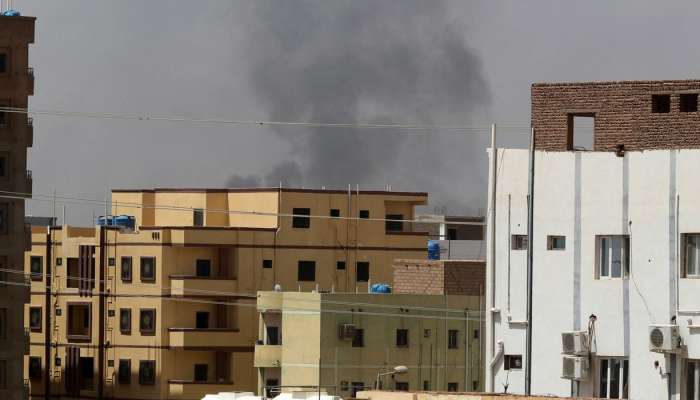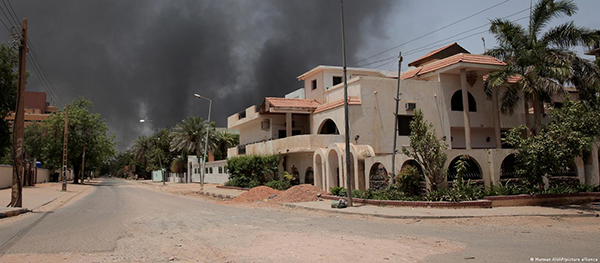

Khartoum: Clashes erupted on Saturday in Sudan's capital Khartoum between the country's military and the powerful Rapid Support Forces (RSF) paramilitary, in what appears to be an attempted coup.
The country's doctors' union said three civilians were killed and at least nine others wounded in the violence.
Sudan's military, led by General Abdel Fattah al-Burhan, overthrew long-term ruler Omar al-Bashir in April 2019. Eighteen months later, the military and the RSF staged a second coup, upending a transition to democracy.
The two agreed to jointly hold power, but tensions between the military leadership and the paramilitary force have increased in recent months.
Conflicting information
RSF claims its units took control of the presidential palace and Khartoum's international airport, along with another airport and military base north of the capital.
The country's military, meanwhile, denied those claims, saying it had gained control over RSF leadership "without resistance" and had struck RSF bases, chasing after paramilitary units.
The military accused RSF of trying to take control of strategic locations, including the palace, but denied they had been successful.
The army also said fighting broke out after RSF troops tried to attack its forces in the southern part of the capital.
It was not initially possible to verify the contradictory statements.
Local media reported that military forces were blocking entrances to the palace and surrounding the state TV building.
A TV anchor briefly appeared to say there were clashes inside the building, with gunshots heard in the background, according to the Reuters news agency.
Later Saturday, RSF commander Mohamed Hamdan Daglo told Al Jazeera that his fighters would keep on fighting until "we capture all the army bases and the honorable members of the armed forces join us."
Planes reportedly damaged, flights canceled
Reports also suggested that flights from Khartoum airports were suspended as a result of the violence, with many aircraft sent back.
Unverified videos on Twitter showed what appeared to be RSF forces on the runway of the international airport.
State-owned Saudi Arabian Airlines said one of its aircraft "had an accident" before its scheduled departure to Riyadh on Saturday, without providing further details.
The airline said its flights to and from Sudan had been suspended until further notice.
Another plane — belonging to a Ukrainian carrier — appeared to have caught fire in the attack, the AP reported.
Eyewitnesses reported shooting in other Sudanese cities.
Calls to end the fighting
The US embassy in Khartoum said it ordered its staff as well as American citizens in the country to "shelter in place."
The UK embassy also issued a similar call, saying it was closely monitoring the situation.
US Secretary of State Antony Blinken said he was "deeply concerned" about the reports of violence and called for it to end "immediately."
European Union foreign policy chief Joseph Borrell called on all forces involved to stop the violence immediately and said in a tweet that all EU staff in the country were safe and accounted for.
Russia's embassy in Khartoum also expressed its concern due to the "escalation of violence" and called on the fighting parties to cease fire.
Regional players including Egypt and Saudi Arabia also called for calm and expressed concern.
Why have tensions flared recently?
The crisis between the military and the RSF escalated after both forces failed to reach an agreement over restructuring the military, seen as a prerequisite before forming a new civilian government.
The agreement is vital to allow elections that would bring the country back on a civilian track after years of turmoil.
A top army general accused the RSF on Thursday of deploying forces across the country without the army's consent, warning of potential clashes in a rare televised speech.
The paramilitary force, which had deployed troops near the northern town of Merowe, some 330 kilometers (186 miles) north of Khartoum, defended the presence of its forces.
The military later said in a statement it was in control of the RSF's Merowe base, adding that paramilitaries had fled.
The RSF emerged from the Janjaweed militia, which al Bashir leaned on in his crackdown on the western Darfur region in the early 2000s.
The militia is accused of committing war crimes against Darfur's non-Arab rebels.